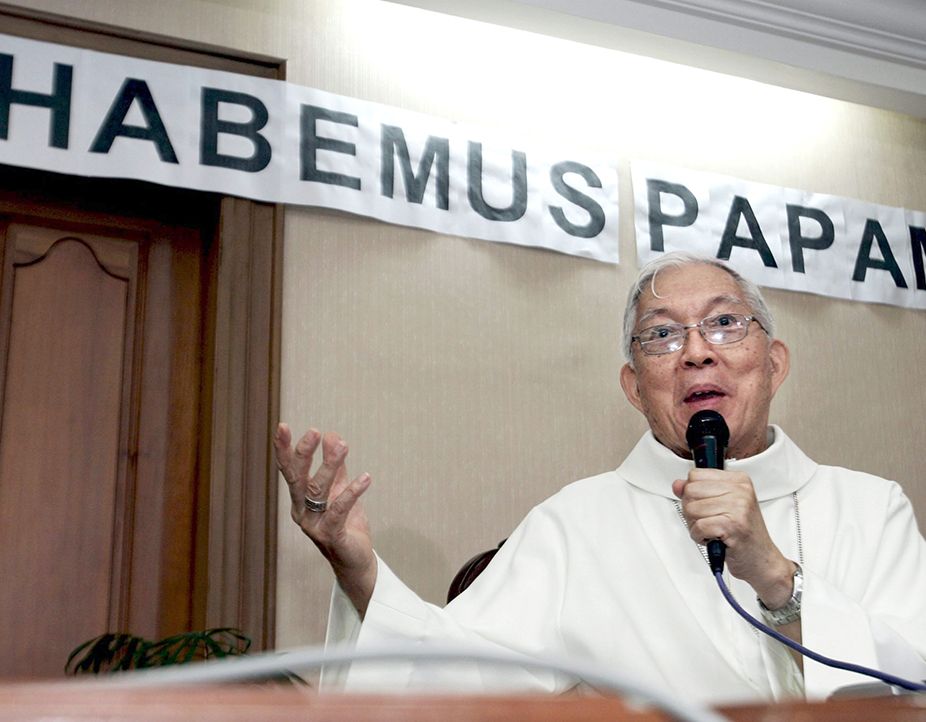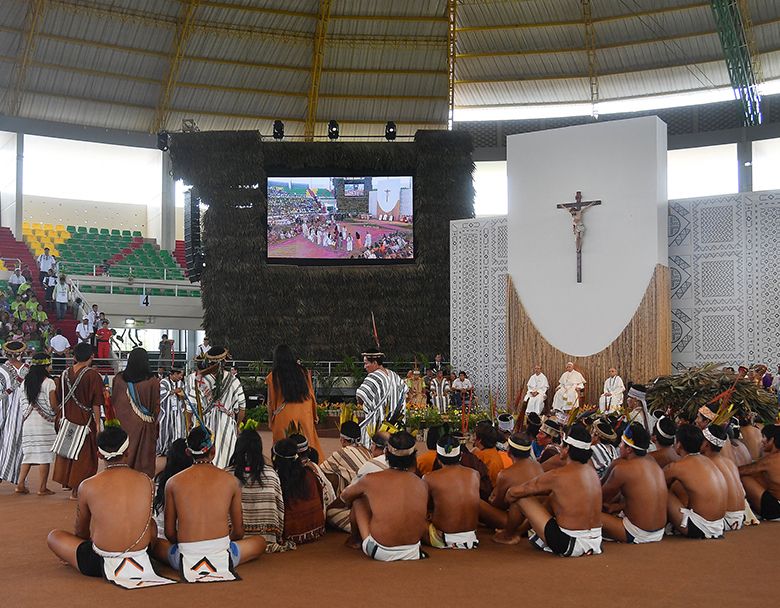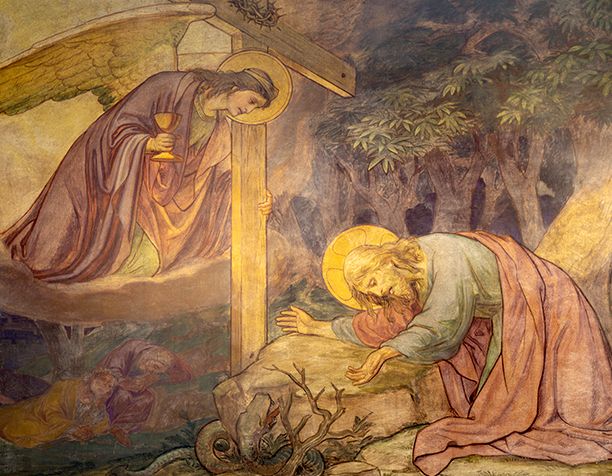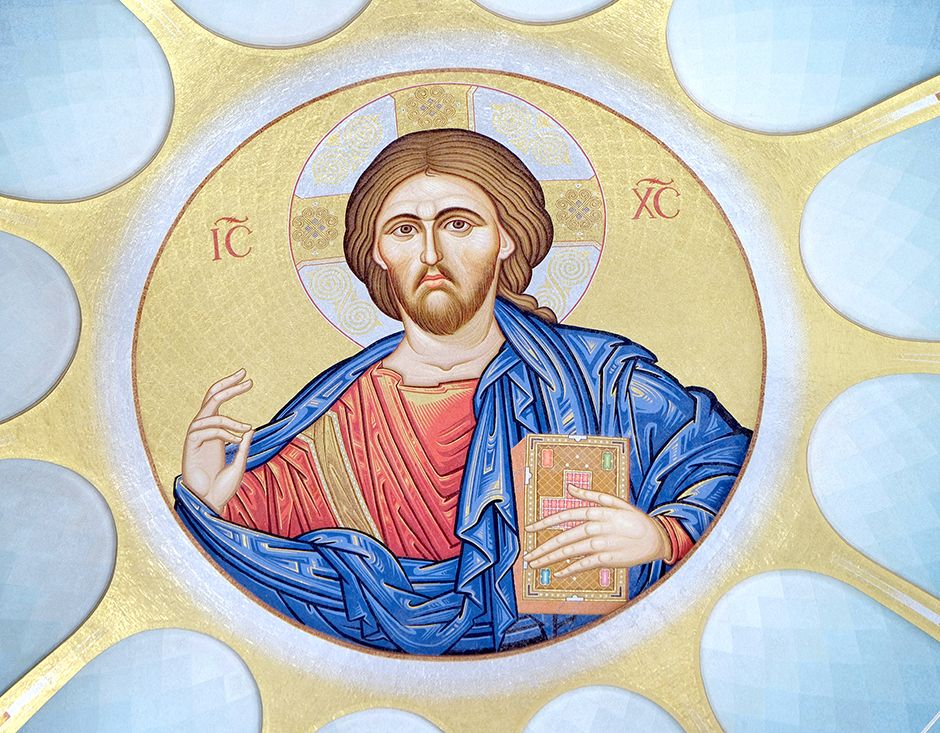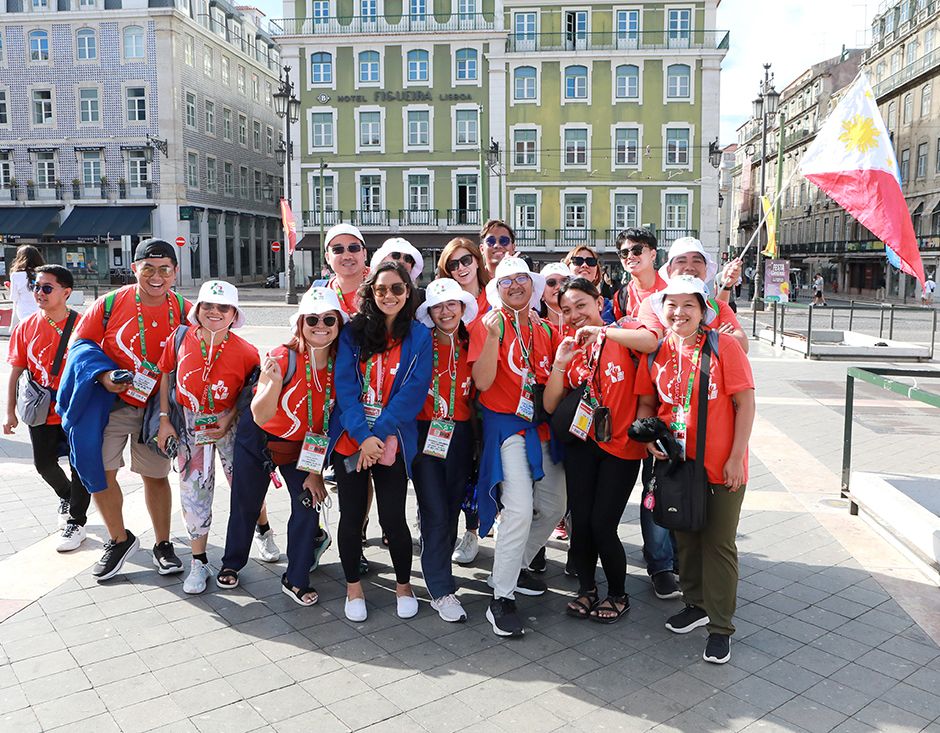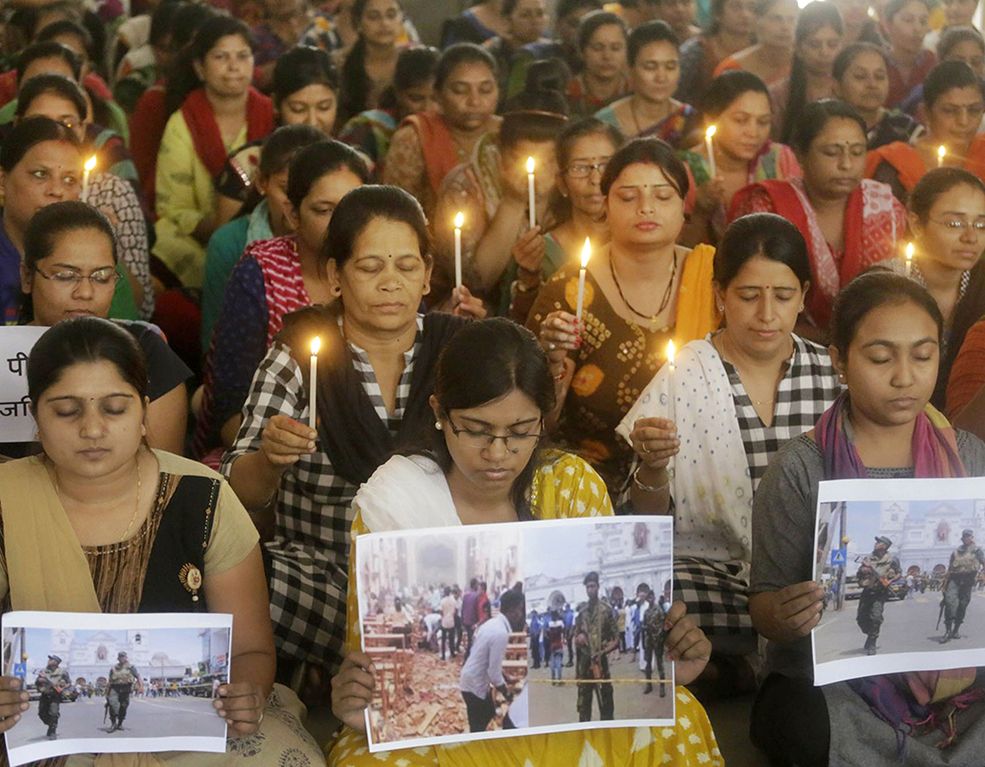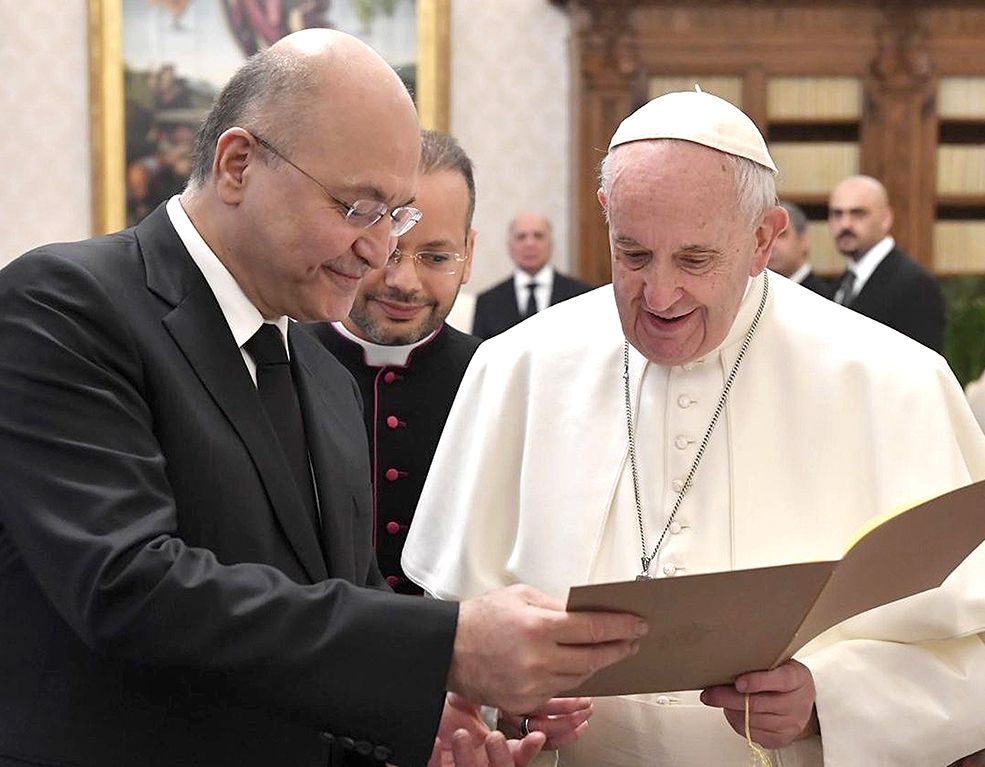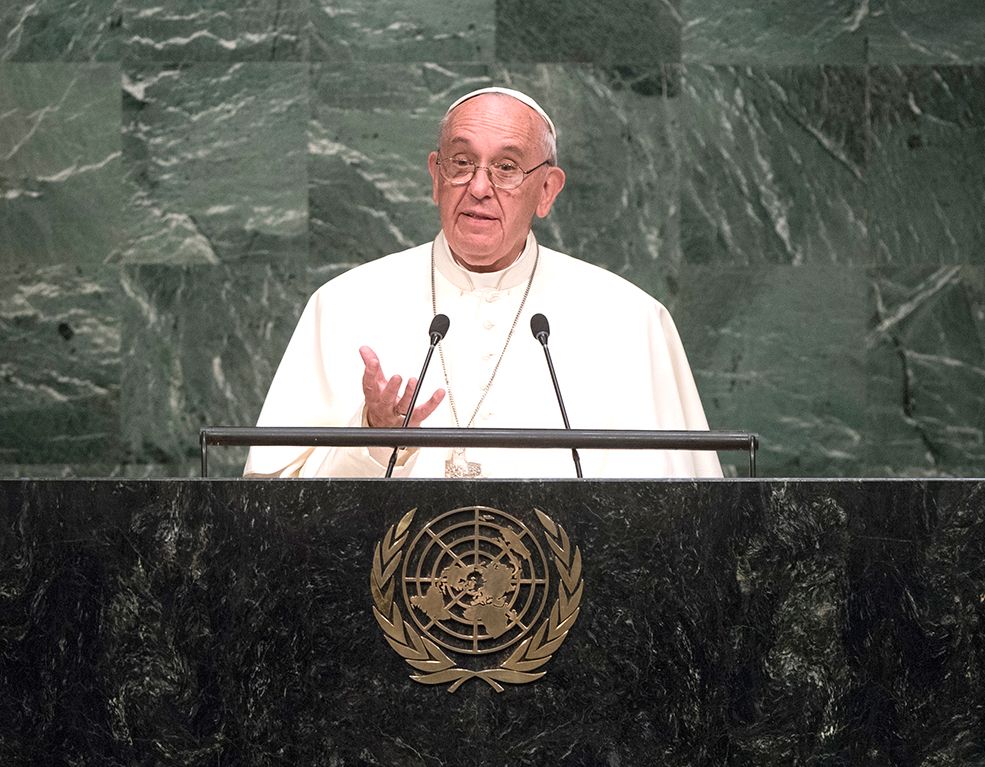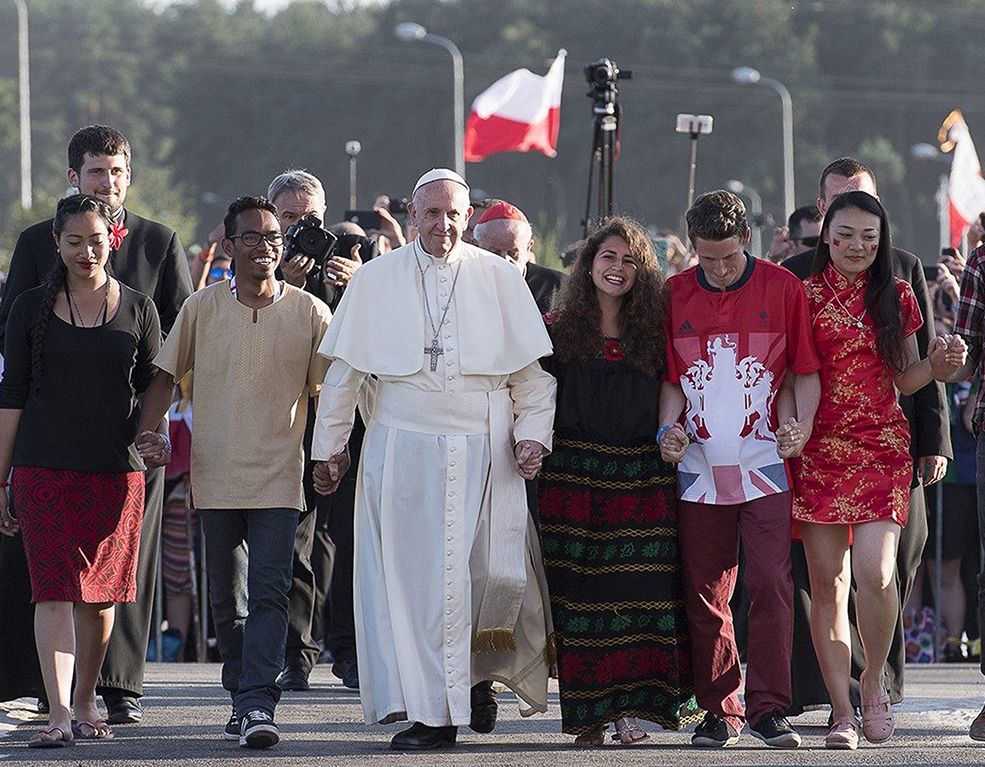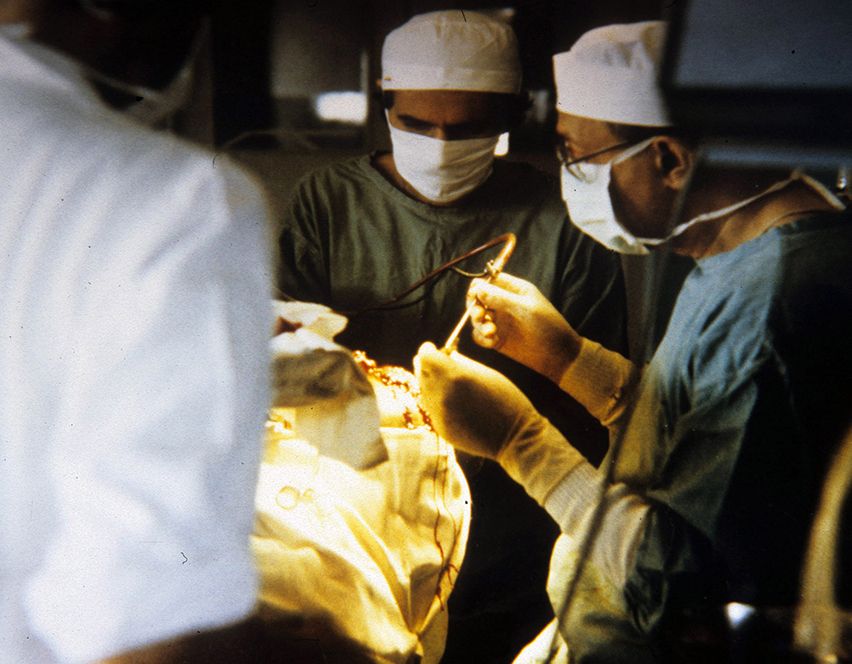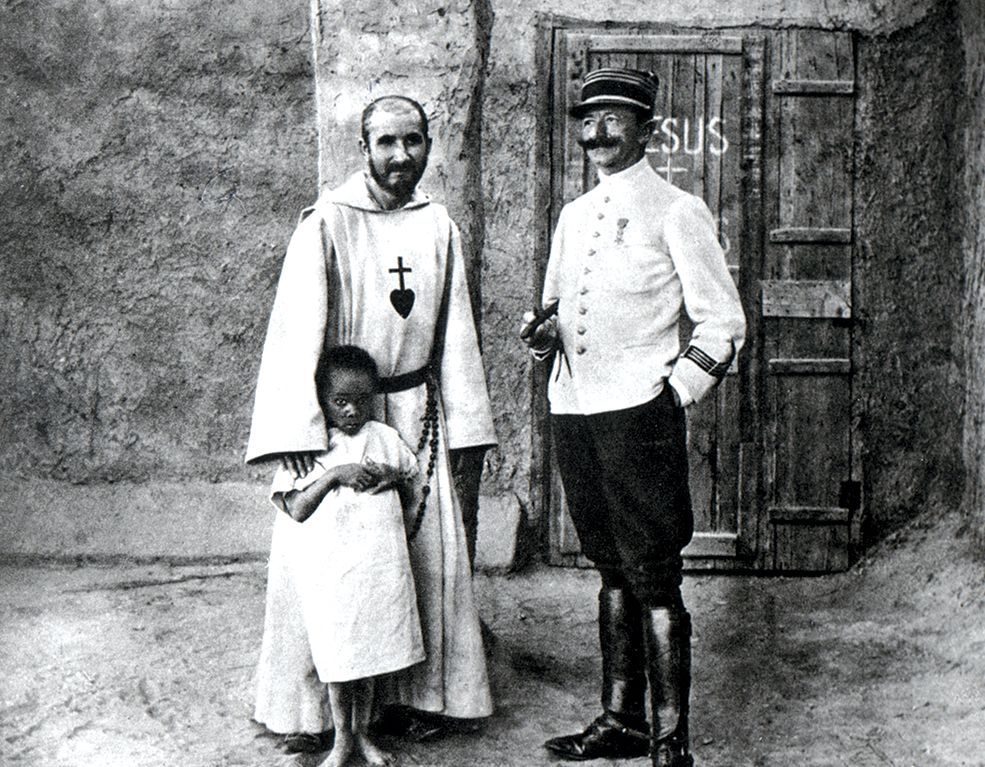Bête-noire for pomp, power, and privilege marked the life of Jorge Mario Cardinal Bergoglio when he was the Metropolitan Archbishop of Buenos Aires. Only the essentials mattered and the rest were superfluous! Sine glossa. Without frills. Without ostentation!
The future Pope Francis lived in an unadorned flat in a building owned by the Archdiocese, cooked his own food, woke up at 5:30 in the morning to do laundry, took the public bus going to his apostolate, knew the daily city traffic, and flew to Rome in economy class.
When I first heard of Cardinal Bergoglio (future Pope Francis) living only on essentials, it harkened back to the times when Manila Archbishop Gaudencio Rosales was traveling back and forth to his hometown in Batangas by public transportation without an assistant, carrying his own stuff and casually talking to his seatmates inside the bus.
When he ditched Villa San Miguel in Mandaluyong City as his official residence in favor of a small apartment at 121 Arzobispado St., Intramuros, Manila, where he resided from 2003 to 2011, his colleagues at the episcopal conference murmured in admiration: It was brave.
A PREFERENTIAL OPTION FOR THE POOR
When we saw Cardinal Chito Tagle taking a pedicab, a cheap mode of transportation, it was not for show. In Manila, Cardinal Tagle was known for owning a car and for going to work by public transport when he was Archbishop of Manila. It’s not for show—simplicity and living on essentials is a hallmark of being a missionary bishop who spent time visiting the depressed areas of Manila as a preferential option for the poor.
Pope Benedict XVI named Rosales the 31st Archbishop of Manila in 2003 and elevated him to the College of Cardinals during a consistory in 2006. The good cardinal, fondly called “Lolo Dency,” shepherded the Manila Metropolitan Archdiocese for eight fruitful years.
He loved, supported, and guided his young priests while he also lovingly visited old and sickly priests on a regular basis. All this emanated from his firm belief that the renewal of the Church considerably depends on the renewal of priests.
He was ordained a priest for the Archdiocese of Lipa on March 23, 1958. “I did not realize that the priesthood that I wanted would make me extremely happy,” Cardinal Rosales once told the Manila clergy.
Although he was ordained a diocesan priest, his priesthood was the beginning of his missionary life. In 1970, then Bishop Alejandro Olalia assigned him as the pastor of San Vicente Ferrer, a very small parish in Barrio Banaybanay in Lipa. Burning with apostolic zeal, he initiated the common celebration of God’s Mercy through what was known as Kumpisalang Bayan, with dozens of priests assisting in the penitential rites and face-to-face confessions.
EVANGELICAL VISITS TO FAMILIES
Fr. Rosales also organized barrio catechism classes that were regularly given to out-of-school children. To multiply his efforts, he conducted basic doctrinal classes to the junior members of the Legion of Mary, who were later commissioned to teach other children. He paid evangelical visits to families and parishioners from 2:00 p.m. to 6:30 p.m. every single day.
After two years, he was transferred and appointed Parish Priest of the Immaculate Conception Parish, the largest Church in Batangas City. With the same missionary spirit, he did not fail to launch his regular house-to-house visits to the peripheries and far-flung barrios. The words of his father – “Become only a good priest” – echoed into his ears from time to time.
In 1974, he was raised to the episcopal rank by Pope St. Paul VI. It was Alfredo Maria Obviar, the first Batangueño Bishop and a longtime friend of his father, who broke the good news to him. The holy bishop summoned Fr. Rosales to Lucena on August 29, 1974. In that meeting, Bishop Obviar gave Rosales a personal gift, the very pastoral staff (baculo) that he used as a young prelate.
Two months later, his episcopal consecration was celebrated and immediately afterwards he was assigned auxiliary bishop of Manila. Si mortuum fuerit, fructum affert, “If it dies, it brings forth fruit,” became his episcopal motto and lived by it since then. Almost at the same time, he was made the National Director of the Pontifical Mission Societies (PMS), based in Manila, and the official Representative for Asia in the Propaganda Fide in Rome (one of groups under PMS), always aiming to die to oneself to become fruitful in the vineyard of the Lord.
The PMS is the official Vatican organization that lends support to every one of the 1,200 mission dioceses of the world. Bishop Rosales’ role then was to mobilize logistical support and guidance to the new, young, or poor dioceses in the country until they are able to become self-reliant.
In 1975, the Catholic Bishops Conference of the Philippines (CBCP) assigned him as the National Director of the Mission Society of the Philippines (MSP). The Archbishop of Manila, Jaime Cardinal Sin, meanwhile, appointed him Rector of San Carlos Seminary in Makati City from 1980 to 1982.
He told his friends one day, “I thank my God that early enough I came to know myself as a very strict mentor and formation agent rather than an encouraging companion and elder. An equation was forthcoming wherein commitment to righteousness must be seasoned by compassion and understanding of common human frailty. I had to pray much in order to have a compassionate heart” in the formation of the clergy.
In 1982, he was appointed coadjutor bishop of Malaybalay in Mindanao and assumed the leadership of the diocese two years later. The Diocese of Malaybalay covered the whole Bukidnon province and part of Lanao del Sur, including the town of Wao and surroundings. Being a Tagalog, he said the Malaybalay ministry was akin to being transplanted to a different world. And yet, he confessed, there were a few great things he experienced in life and this difficult assignment, inter alia, “gave me great joy.” Oh, the heart of a missionary!
In Malaybalay, he learned the Bisayan language and got acquainted with the culture of the Dumagats, Manabo, Talaandig, and other Mindanao settlers. He was there during the many incidents of the violent Moro National Liberation Front (MNLF) rebellion under Nur Misuari and communist National People’s Army (NPA) rebellion. He was terrified to the bones, he admitted, when he heard that more than 124 residents were salvaged at Linabo Parish and its adjoining barrios within a year.
Looking back, he said, “Everything depended on God but any accomplishment would need my cooperation. Very quietly, hard work became my brand. But I love not being noticed. I hardly realized then that simplicity of life was my original preference. I loved my studies and my work and I was not interested in anything else other than what was asked of me at the present moment.”
ANOTHER YEAR OF FAVOR
A year ago, Cardinal Rosales made this declaration, “How do you thank God for 90 years? I never thought in my wildest dream that I would reach 90 years old.” Well, another year of favor was added to his missionary life. This year (2023) he profusely thanked God for the multitude of heavenly blessings he has received during his entire pastoral ministry: 17 years as cardinal, 48 years as bishop and 65 years as priest.
Today, the Catholic Church in the Philippines is so blessed abundantly. After 500 years, she comprises 86 ecclesiastical jurisdictions (Archdioceses, Dioceses, Vicariates and Prelatures), including the Military Ordinariate of the Philippines.
Today’s bishops’ conference (CBCP) is blessed with a Cardinal Rosales, a Cardinal Tagle, a Cardinal Jose Advincula, a Cardinal Orlando Quevedo, OMI, and many other bishops, who in more ways than one had been missionary leaders shepherding the Lord’s Flock in the most challenging places. The CBCP is also blessed with numerous venerable servant leaders, men of brave hearts, who live edifying lives and who do not stop reaching out to the 80-plus million baptized Catholics scattered de Aparri hasta Jolo.
Outstanding among them is Cardinal Rosales. On August 10 this year, the Archbishop Emeritus of Manila turned 91. He gratefully observed his birthday by celebrating a Holy Mass at the St. Francis de Sales Regional Major Seminary in Lipa, south of Manila, where he had been staying since retirement in 2011. Sine glossa. Without frills. Without ostentation! Only the essentials matter and the rest are superfluous!

